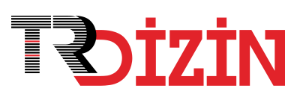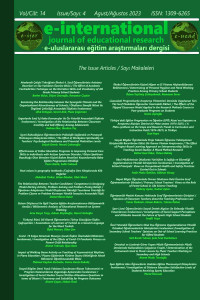Research Article
Systematic Reviews and Meta Analysis
Issue Editorial Board

https://avesis.inonu.edu.tr/hasan.demirtas



2005 yılından itibaren Milli Eğitim Bakanlığına bağlı çeşitli okullarda okul yöneticiliği ve öğretmenlik yaptı. 16/07/2024 tarihinde MERSİN EYÜP AYGAR ANADOLU LİSESİ Müdürlüğüne atandı. Halen bu görevine devam etmektedir.
Uluslararası Sosyal Bilimlerde Mükemmellik Arayışı Dergisi’nin editörlüğünü yapmaktadır. Çeşitli akademik dergilerde yayınlanmış çok sayıda makalesi, kitap editörlükleri, akademik kitap bölümleri ve kongre bildirileri bulunmaktadır. Çeşitli üniversitelerde lisans ve lisansüstü düzeyde dersler vermektedir. Eğitim Bilimleri ve Türk Dili ve Edebiyatı alanında bilimsel çalışmalarına devam etmektedir.
Ayrıntılı özgeçmiş için tıklayınız ---> http://meb.ai/1mjM10
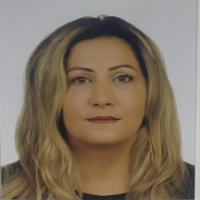


Doç. Dr. Esef Hakan TOYTOK lisans eğitimini Celal Bayar Üniversitesi Eğitim Fakültesinde tamamlamıştır. Sakarya Üniversitende Sosyal Bilimler Enstitüsünde Eğitim Bilimleri ABD’de yüksek lisans eğitimini, Abant İzzet Baysal Üniversitesi Sosyal Bilimler Enstitüsünde de doktora eğitimini tamamlamıştır. Milli Eğitim Bakanlığında öğretmenlik ve çeşitli kurum müdürlükleri yapmış, bir çok komisyon ve kurullarda görevler almıştır. 2014 yılından beri akademide görev yapmaktadır. Halen Kahramanmaraş Sütçü İmam Üniversitesi Eğitim Fakültesinde öğretim üyesi olarak görev yapmaktadır.


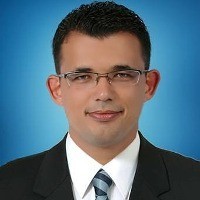



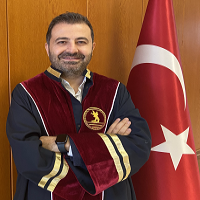



Department of Child Development, Faculty of Health Sciences, İnönü University, Malatya, Türkiye
ORCID: 0000-0003-3951-7261
E-mail: [email protected]



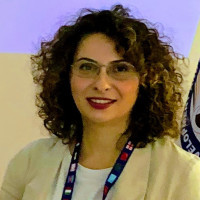

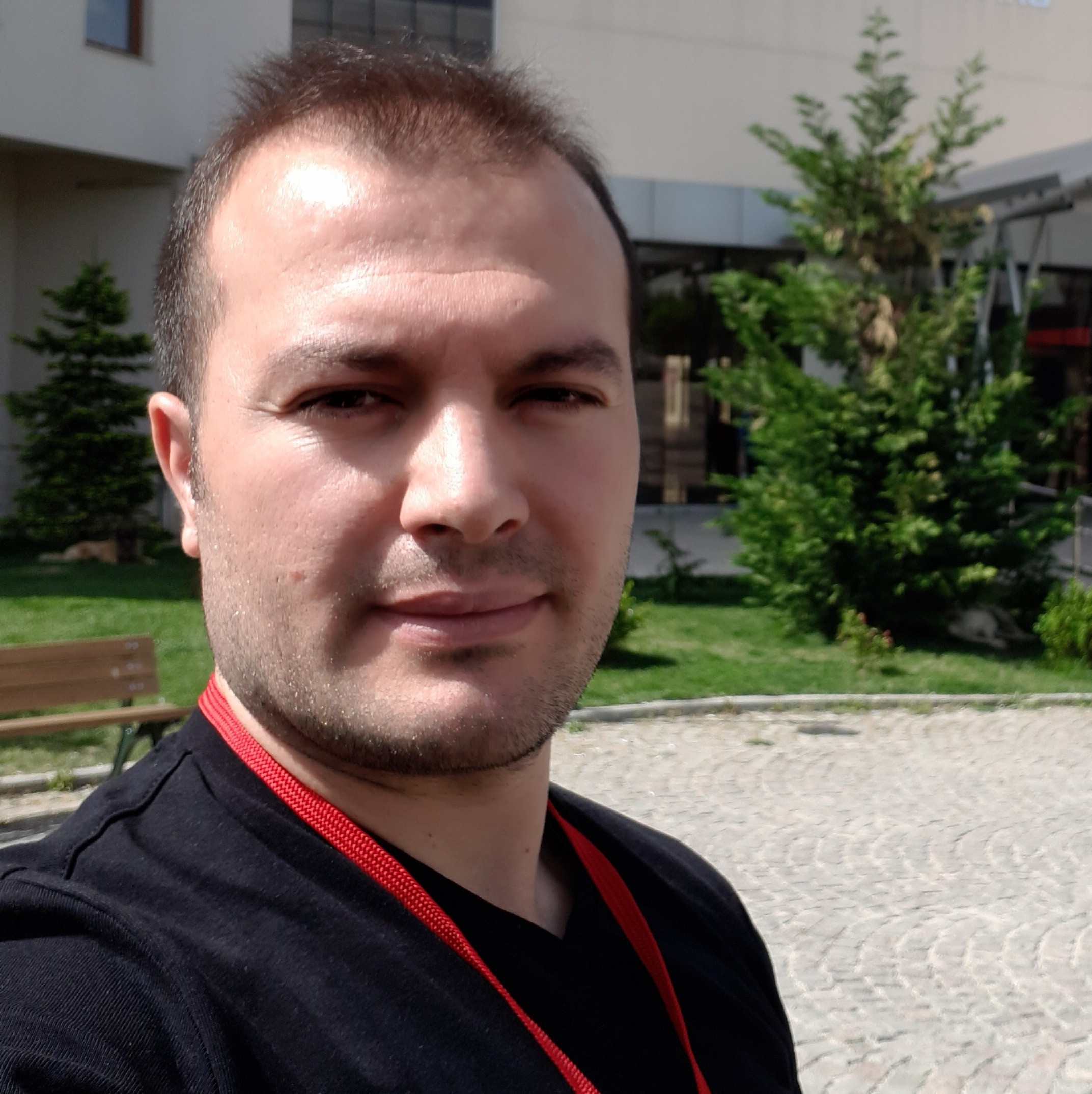



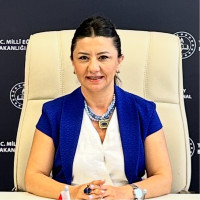


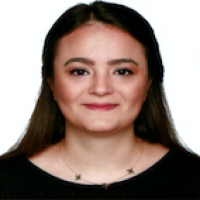
Aim & Scope
The e-International Journal of Educational Research (E-IJER) attaches importance to developing the education system within the scope of social responsibility policies that are not for profit and public interest, and is pleased to host qualified scientific studies that have the potential to solve educational problems and produce theories.
E-International Journal of Educational Research is a scientific journal publishing reviewed articles in the field of education. The publishing language of the journal is Turkish or English.It is published six issues (February, April, June, August, October, and December) per year since April 2021. In e-International Journal of Educational Research, the following fields are considered as the manuscripts on EDUCATIONAL BASIC SCIENCES: Educational Administration, Supervision, Economy and Planning, History of education, Counseling and Guidance, Measurement and Evaluation in Education, Program Development in Education, Distance Education, Special Education, etc. DISCIPLINES OF SCIENCES EDUCATION: Areas of Science and Mathematics Education; Math Education, Chemistry Education, Physics Education, Biology education, Science Education. Health Sciences Education: Physical education, Medical Education and Nursing Education. Social Sciences Education; Historical Education, Geography Education, Sociology Education, Psychology Education, Philosophy Education, Religious Education, Social Studies Education, Turkish Language Education, Education of Foreign Language, Education of elementary teachers, Preschool Education. Fine Arts and Literature Education; Music Education, Pictorial Art Education, Literature Education, Education of Performing Arts. Justice Sciences Education; Law Education, Security Education. Computer Sciences Education. The manuscripts submitted to the e-ijer's are reject or send back by the editor or the publication boards of journal if the format and content is not suitable.
Author Guidelines
General Rules
Submissions (Manuscripts) submitted to the journal web site will be prereview by the members of the Prereview Board. The submissions found suitable at the pre-evaluation stage will proceed to the evaluation stage, while manuscripts not conforming to the submission guidelines will either be returned to the responsible author for correction or might be re-formatted or rejected. During the evaluation stage, the editor-in-chief or editor will invite relevant experts (reviewers) of the field to review the manuscript. Submissions that comply with the following writing rules are included in the review process:
• Submissions must be within the aim, scope, publication ethics and policy of the journal.
• The language of the submission must be Turkish or English.
• The journal has a blind review system (two reviewers). Therefore, the first submission never includes a sign, name or statement that indicates the identity of the author (s).
• For Turkish submissions, a short "Abstract" consisting of 250-300 words and an "Extended Abstract" consisting of 1500-2000 words in English are included (After being accepted for publication, we will translate the submissions whose language is not Turkish). However, the authors whose native language is Turkish will prepare the sections of "Turkish title", "Turkish Abstract" and "Turkish Extended Abstract".
• The similarity report of the submitted work should be received with the help of programs such as Ithenticate, Turnitin, etc. and uploaded to the system together with the submission. In the report to be taken without including (on) the citation and bibliography (because showing the citation and the bibliography of the citation is a legal obligation as well as an ethical behavior based on respect for labor. It is recommended that the similarity rate should not exceed 20% in general and 4% for a single work. The similarity report should be sent in its comprehensive form. It should not be forgotten that "similarity" does not mean "plagiarism", therefore similarities that can be included in "plagiarism" should be avoided even if the rates in question are low or high. Although these rates are low or high, situations that can be included in "plagiarism" should be avoided in monitoring with human eyes and mind. If the subject of the submission is a legal document (or similar), it should be referenced wherever it appears and should be considered as a citation (with no percentage limit).
• If any of the data collection methods such as interview, observation, questionnaire, scale, experiment was used in the submitted study, the statement that permission was obtained from the relevant unit/persons should be included in the method section of the article and the relevant. The document should also be uploaded to the journal system as an additional file with the name of "permission letter".
• It is recommended that the length of a paper should not exceed 7000 words including appendices.
• The format of the submissions must conform to the APA 7th style.
• Submissions should be prepared in Word format and according to the “First Submission Template” (which can be downloaded from the Journal Home Page).
Article Processing
It refers to the stages that run from the upload of the article to the system until its publication or rejection.
1-Pre review stage
• The documents that the author should send with the article [similarity report, ethical permission document (if necessary), Copyright Transfer Agreement, Cover Letter Page] are checked.
• It is checked if the article (must not contain any inscriptions or signs indicating the identity of the author(s)) has been prepared according to the template of the journal.
• It is checked whether the submitted article has been scientifically reported.
• The method used, the data collection tools, and the analysis of the data steps are checked whether it is in the correct form and content.
• The potential level of contribution to the international or national literature through the article and its subject in question is checked.
• The similarity report is checked according to the criteria given under the heading "General Rules".
• After the work goes through the above processes, it is seen as "can be sent to the referees", an editor is appointed and the author is expected to pay the fee (details explained in email to her)
• The author (See: Article Processing Finance) pays the fee. A bill is sent to him and then the "Blind Peer-Review Process" begins
2-Blind peer-review stage
• At least two referees who are experts with PhDs on the subject of the article are invited to review it.
• The invited referees are given 5 days to accept the invitation. If this period is exceeded, this period is extended for 15 days for once. If the invitation is not accepted within this period, another referee is invited.
• The referees whose accepted the invitation are given 15 days for review. An additional period of 15 days is given for once only, for the reviews that are not completed even though the period has expired. If the review is not completed at the end of this period, the duty of reviewer is canceled, and another referee is invited.
• If, as a result of the review, both referees give an acceptance or minor revision decison, the article is asked the author to make the necessary revisions in light of the referee comments and editor’s notes (if any). The editor follows this process and accepts the article if the revisions are made properly.
• In case of acceptance or minor revision of one referee and major revision of the other, the major revision decision be reviewed by the editor. The editor may be decided to invite a revision (if the referee's decision is sufficient) or a third referee.
• In case of acceptance or minor revision of one referee and rejection of the other, a third referee is invited. The decision is made in line with the suggestions of the third referee.
• If both referees give a major revision or rejection decision, the study is rejected. Meanwhile, referee comments are reviewed by the editor. If it is understood that the referees have made inappropriate, unfair, or subjective, or without reason evaluations, the relevant referee’s opinion is not taken into account. Another referee is invited to replace them.
• The refereeing process may differ depending on whether the referees respond to the invitation in a timely manner, complete the review on time, if a third or more referees are required. This period can vary between 1-5 months on average.
• During the whole process mentioned above, the control of the revisions belongs to the editor. In case of an obligation not fulfilled by the author (even if the referees have made an acceptance decision), the editor may request additional referee opinion.
• The referees are paid for an article they review, regardless of their acceptance or rejection decision at the end of the process (See: Article Processing Finance). If the referees wish, their fees are donated to an organization on their behalf and the certificate is sent to their email. Referee/reviewer payment transactions take place within the week of publication of any issue.
3-Publishing stage
• After the article is accepted, it is prepared according to the "Article Template" (downloadable from the Journal Homepage).
• A language editor is assigned to the accepted article. The language editor is given 7 days for final reading.
• If the language editor decides that proof-reading is required, the article is sent to the author for proof-reading.
• A layout editor is assigned to the accepted article. The layout editor is given 7 days for final reading.
• The layout editor designs the possible publication of the article under the name "LAYOUT VERSION" and sends it to the author.
• The author checks the layout version and prepares the "Layout Commitment" and uploads it to the system.
• Layout editor makes final revisions (if any) according to the undertaking from the author and sends it to the editor.
• The editor assigns the article to the relevant issue to complete the publication of the article.
Ethical Principles and Publication Policy
Publishing Ethics and Policies
E-International Journal of Educational Research (E-IJER) is a non-profit, peer-reviewed international academic journal publishing papers in all disciplines of educational sciences since 2010. The publication stages of E-IJER are based on the unbiased production, development, and sharing of information via peer-reviewed articles which ensure the application of the scientific method, and impartiality. Accordingly, double blind peer review system is applied in the journal. All components as publishers (or organization authorized by protocol), editors, authors, referees, and readers must comply with publishing ethics and policies. In case of identification of falsified or fabricated data in the manuscript, this will be officially reported to the institution of the author and the manuscript will be rejected. Editorial board members and/or the reviewers reserve the right to ask the author(s) to provide raw data used in the manuscript. The members of the E-IJER Editorial Board are assigned considering their expertise in various disciplines of educational sciences. An editor is assigned as the chair of the Editorial Board and two field editors are also assigned. Based on the subject of the research, the editor may send an article to some other experts who are not members of the Editorial Board.
Responsibilities of the Editorial Board
E-International Journal of Educational Research (E-IJER) works hard to ensure the content to be ethically sound. In order to reach this goal, the advice laid out in the guidelines on the COPE (Committee on Publication Ethics) website is followed.
- Editorial Board of E-IJER is responsible for all peer review processes of the submitted manuscripts. They are responsible for deciding independently which of these articles should be published, regarding their importance to the scientific community and public interest.
- The relationship between Publisher and the Editorial Board is based on independence policy, and all decisions of the editors are independent of the publisher and the other persons and institutions.
- Editorial Board of E-IJER aims to raise the scientific quality of the journal.
- Editorial Board of E-IJER determines and performs journal policies (publication, blind review, evaluation process, and ethical principles, etc.).
- Editorial Board of E-IJER keeps the records of every article electronically or in written forms.
Ethical Responsibilities of Editor and Field Editors
- The editor-in-chief has to meet the demands of authors and readers; try to provide feedback and be transparent in issues that require correction or explanation.
- The editor-in-chief, ensure that the articles are original and contribute to the literature, readers, researchers, and practitioners.
- The editor-in-chief implements the policies of the blind review and evaluation process, keeps the identities of the reviewers confidential, and ensures that each article is evaluated impartially and in time.
- The editor-in-chief ensures the protection of personal data in reviewed articles and protects the personal data of authors, referees, and readers.
- Editors pay attention to the protection of human and animal rights in the articles. They care to document the explicit consent of the participants of the article and pay attention to the approval of the ethics committee.
- Editors take precautions against misconduct. When necessary, they can operate an objective investigation and share their findings.
- Editors protect the intellectual property rights of the published articles and defend the rights of the journal and the author(s) in case of violation.
- Editors also take the necessary precautions to ensure that the content of the published articles does not infringe the intellectual property rights of other publications.
Ethical Responsibilities of Reviewers
Reviewers must bear the ethical responsibilities in E-IJER as below:
- Reviewers should accept to evaluate the articles only related to their field of expertise.
- Reviewers should make the evaluation impartially and confidentially. Nationality, gender, religious or political beliefs, commercial concerns, etc. should not distort the impartiality of the evaluation.
- When reviewers understand that there is a conflict or collaboration, they should inform the editors and refuse to evaluate the article. A reviewer should also inform the editor-in-chief about any similarity of a published or unpublished research if noticed or suspected.
- Reviewers must evaluate articles with a constructive attitude, and they should refrain from insulting and hostile personal comments. Criticism of the authors personally would be inappropriate.
- The reviewers will take into account the "Author Guidelines", "First Submission Template" and "Article Template" as criteria when evaluating both the first submission and the article.
Ethical Responsibilities of the Authors
The ethical responsibilities of the authors are as below:
- Any manuscript submitted to E-IJER should be original. It should not have been published before in its current, or similar, form. If any substantial element of the paper has been previously published, it is needed to indicate to the journal editor upon submission.
- The research should not have been submitted to elsewhere.
- By submitting the manuscript to E-IJER, author(s) guarantees that the work is not in infringement of any existing copyright.
- The author(s) have to provide the raw data, permission for research and approval of the participants to the editorial staff if it is asked for.
- The author(s) should present the proof s for ethical data collection process (such as obtaining permission from others to use scales, questionnaires, observations, interviews, personal photographs and similar documents) in the article. It should be stated in the articles that research and publication ethics and copyright regulations for intellectual and artistic works are complied with. If the study is conducted on human and/or animal subjects, it should be reported in the article that the study is carried out in accordance with local and international guidelines.
- The author(s) cite other works appropriately (in quotation marks up to three lines if it is a direct quotation, and in small and condensed lines if it is more than three lines) and indicate this in the text and at the end.
- Author(s) are obliged to inform the editor-in-chief if they happen to notice any mistake in the research and cooperate during the correction or withdrawal process.
- When the layout process of the accepted article is completed, the corresponding author is informed and the corresponding author fills in the "Layout Commitment" on behalf of all authors and uploads it to the system as an "additional/supporting file".
- The author(s) must make the revisions requested by the reviewers in the manuscripts within at least one year. Manuscripts that are not revised within this period are returned to their author(s) without re-application.
The Notification of Inconsistency with Publishing Ethics and Policies
In case of an unethical situation that does not comply with the “Publishing Ethics and Policies” of E-IJER during the evaluation process, in an early appearance, or a published article, it should be reported to the editor-in-chief.
Open Access Policy
Articles published in this journal are permanently free for everyone to read, download, copy, distribute, print, search and link to the full texts of these articles.
License Policy
Articles published in this journal are licensed under "Attribution-NonCommercial-ShareAlike 4.0 International (CC BY-NC-SA 4.0) license."
Copyright Policy
The author(s) of published articles in this journal transfer all publication rights to E-IJER.
Price Policy
The final version of the published journal article is instantly and permanently available to everyone for free. Process costs (100 Dollar-USD) are covered by the author(s) himself or on behalf of the author by his/her organization/financier institution/community, usually in the form of an Article Processing Finance (APF) (for each article that can be sent to the referees after preliminary evaluation). The fee paid is not dependent on the "accept" or "rejection" decision of the article. Every author who submits an article to the journal and whose article can be sent to the referees after preliminary evaluation is deemed to have accepted this condition legally. In the meantime, regardless of the acceptance or rejection decisions, the reviewers are also paid. However, Editor-in-Chief and Issue editors do not charge any fees. A protocol has been signed with the Eduscience Academy (http://www.eduscience.net/) to carry out this process that will ensure the continuity of the journal. Detailed information on this subject can be accessed from the Article Processing Finance (APF) link on the journal home page.
This journal uses a CC BY-NC-SA license.
[email protected] http://www.e-ijer.com Address: Ege University Faculty of Education İzmir/Türkiye




